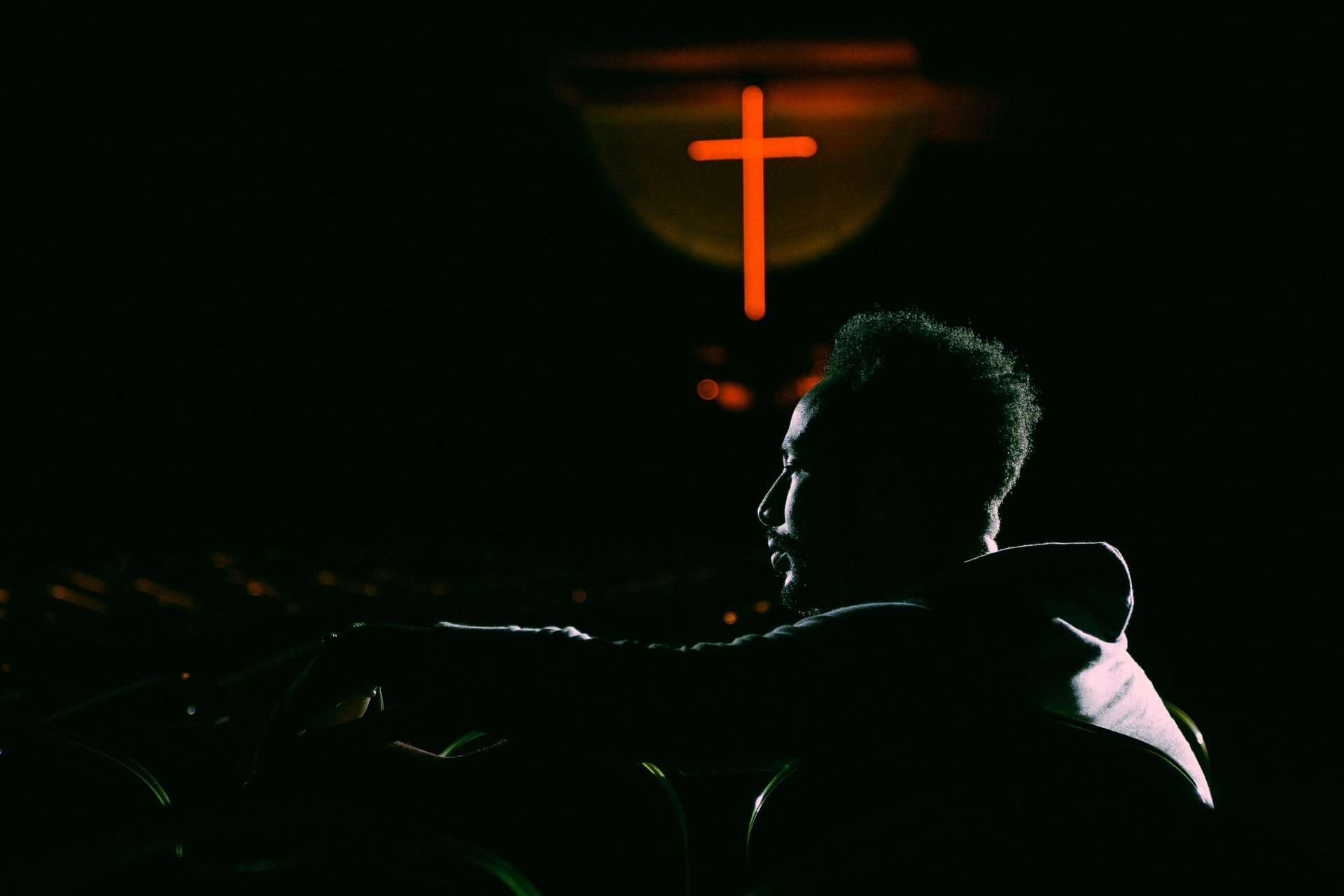John 1
A Man Named John
John Learns the Good News
More than 2,000 years ago, a young fisherman named John left his boats and nets to follow Jesus. For three and a half years, he and eleven other men went with Jesus from town to town in the country of Palestine. John and these other disciples or students of Jesus learned well the lessons Jesus taught about God and His love for all people. Later, John became Jesus’ closest friend.
men went with Jesus from town to town in the country of Palestine. John and these other disciples or students of Jesus learned well the lessons Jesus taught about God and His love for all people. Later, John became Jesus’ closest friend.
John and the other disciples learned from Jesus the good news or gospel. Gospel means “good news.” They learned that Jesus is the Son of God. Jesus had come to earth to save all humanity from their sins and to give them eternal life. This was to be a spiritual message to impact all people, everywhere. Before Jesus went back to heaven, He told the disciples to share this good news with everyone.
Jesus also promised the disciples that the Holy Spirit would help them to remember all the things He had taught them. The Holy Spirit would help them to share the good news with others.
John Shares the Good News
John spent his life telling people the good news that he had learned from Jesus, and later, God told him to record the good news. He could not know then that copies would be made of his writings for generations of people worldwide.
God’s Holy Spirit reminded John of the words Jesus had said and the deeds Jesus performed. John carefully recorded the important truths Jesus had taught him. These were later written in the New Testament and is referred to as the Gospel of John.
In the same way, the Holy Spirit inspired John to write four other books. Three of them were letters: 1 John, 2 John, and 3 John. The other was a revelation of what would happen in the future. That is the last book in the Bible, the book of Revelation. All five books that John wrote are part of the New Testament.
The Gospel of John is written in the Greek language, a language that the people of his time would understand. Since most of us do not understand Greek, the Bible has been translated into our language: English. There are many translations of the Bible into English.
The Word of Life
Read John 1:1–18. These verses are very important because they tell us who Jesus is and why He came to this earth. They are the introduction John wrote for his book. The rest of John’s Gospel explains the truths that we have in these first verses.
The Eternal Word
God has let us know what He thinks through His written Word, the Bible, and through His Son Jesus who came to earth to testify of God. Jesus is God’s living Word. John writes that Jesus, the living Word, became a human being (v. 14).
From John 1:1–3 we learn that Jesus was with God from the beginning. Jesus is God. This does not mean that there are two Gods. There is only one God, but He is three Persons in one— the Trinity. God is Father, Son, and Holy Spirit. Each of the
three has a special work to do and has always worked together.
God the Father, Jesus the Son, and the Holy Spirit are eternal, without beginning or ending. Jesus was born on earth and is called the Son of God, but He had always existed in heaven before that. John 1:3 says that all things were made by Jesus. Colossians 1:16 also notes, “For by him all things were
created: things in heaven and on earth.” Jesus Christ gave life to all things. Jesus gives eternal life to those who repent of their sins and believe in Him as their personal Savior. Therefore, “who has the Son has life; he who does not have the Son of God does not have life” (1 John 5:12).
Light and Life
John 1:4 tells us that the life of Jesus brought light to all humanity. Just as the light lets us see where to walk, Jesus shows us how to live. He shows us the way to heaven.
Many people do not want to accept Jesus and would rather walk in the darkness of their own ways. But those who do believe in Jesus as their personal Savior are given the right to become God’s children.
 Although we were created by God, this did not make us His children. We have all sinned, and our sins separate us from God. But when we believe in Jesus as our Savior and Lord, He takes away our sin and gives us a new nature. He changes us so that we will not continue doing wrong. We call this great change new birth. Through it, God becomes our Father, and we become His children.
Although we were created by God, this did not make us His children. We have all sinned, and our sins separate us from God. But when we believe in Jesus as our Savior and Lord, He takes away our sin and gives us a new nature. He changes us so that we will not continue doing wrong. We call this great change new birth. Through it, God becomes our Father, and we become His children.
We become the children of God, not through anything that we do for ourselves, but through being born of God. We are not the children of God by natural birth. You might say, “I was born a Christian. My father and mother were Christians.” However, your parents’ being Christians does not make you a Christian. You are a Christian only when you are born of God. That takes place when you believe in Jesus and He becomes your Savior.
The Word Becomes Man
Review John 1:14–18. God became a man! This is the greatest thing in the history of the world. God loved us so much that He came to take our punishment, to die for our sins so that we could live eternally with Him. But to die, Jesus had to have a human body. So He was born as a baby in Bethlehem. The Son of God became a man, so He could make us the children of God.
God gave the law through Moses, but we could not keep the laws of God. This failure of humanity confirmed our desperate need for the Savior, Jesus. In Him we receive God’s grace: God’s pardon for our sins and a wonderful new life of blessings.
John the Baptist’s Message
John 1:6–10 and 15 tell about John the Baptist, God’s messenger. This is not the John who later wrote the five biblical books that we referred to earlier. Great crowds went to hear John the Baptist preach. Some people thought that he might be the Messiah or Christ, the Savior that God had promised. But John declared that he was only God’s messenger, sent to prepare people to receive the Messiah. He told them to repent and be baptized.
When a great king traveled in Bible times, he sent an emissary to let people know he was coming. John’s proclamation of Jesus did essentially that: prepare the people for Jesus.
The Lamb of God
Read John 1:29–34. The mothers of John the Baptist and Jesus were cousins. Yet John did not know who Jesus really was until God revealed it to him. It seems that they had not seen each other for a long time. God showed John that Jesus was the Messiah: the sacrifice for sinners, the One who would baptize with the Holy Spirit, the Son of God.
Jesus was called the Lamb of God because lambs were used as sacrifices for sin. People who had sinned and deserved to die could ask God to accept the death of a lamb in their place. Jesus is the Lamb that God sent to die in our place.
The First Disciples of Jesus
Read John 1:35–42. Two of those who were disciples or followers of John the Baptist went with Jesus. One was Andrew; the other is not named. He may have been John, the writer of the Gospel you are studying.
Andrew then got his brother Simon, who was also called Peter. Andrew believed Jesus was the Messiah. The term Messiah means “Christ” or “Anointed One.”
Jesus Calls Philip and Nathanael
Read John 1:43–51. Philip told Nathanael about Jesus. At first, Nathanael would not believe that Jesus was the Messiah. So, Philip urged him to see for himself.
Upon meeting Jesus, Nathanael was convinced that Jesus was the Son of God. His encounter with Jesus teaches that anyone who seeks Jesus with a sincere heart can know the truth about who He is. Jesus will reveal himself through the Holy Spirit. This is His promise (John 14:21, 23).
In John 1:51 Jesus calls himself the Son of Man. This name is used thirteen times in John’s Gospel. It reminds us that the Son of God left His throne in heaven and became a human. As a man, Jesus was tempted but did not sin. He always did the will of God. As Son of Man, Jesus showed us what perfect humanity can be like by the help of God. As Son of Man, He represented all humanity before God and died as a substitute for the human race.
John begins his Gospel by telling us who Jesus is. In this first chapter he presents these names of Jesus: the Word, Jesus, Lamb of God, Messiah, Christ, Teacher, Son of God, King of Israel, and Son of Man.
